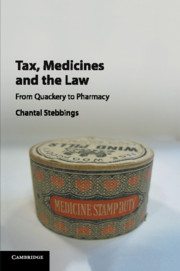
- Cited by 2
-
Cited byCrossref Citations
This Book has been cited by the following publications. This list is generated based on data provided by Crossref.
Hale, Matthew Raymond, Graham and Wright, Catherine 2018. List of publications on the economic and social history of Great Britain and Ireland published in 2017. The Economic History Review, Vol. 71, Issue. 4, p. 1360.
Hale, Matthew Raymond, Graham and Wright, Catherine 2019. List of publications on the economic and social history of Great Britain and Ireland published in 2018. The Economic History Review, Vol. 72, Issue. 4, p. 1451.
- Publisher:
- Cambridge University Press
- Online publication date:
- October 2017
- Print publication year:
- 2017
- Online ISBN:
- 9781139178990
- Subjects:
- Socio-Legal Studies, Law, History, History of Medicine




